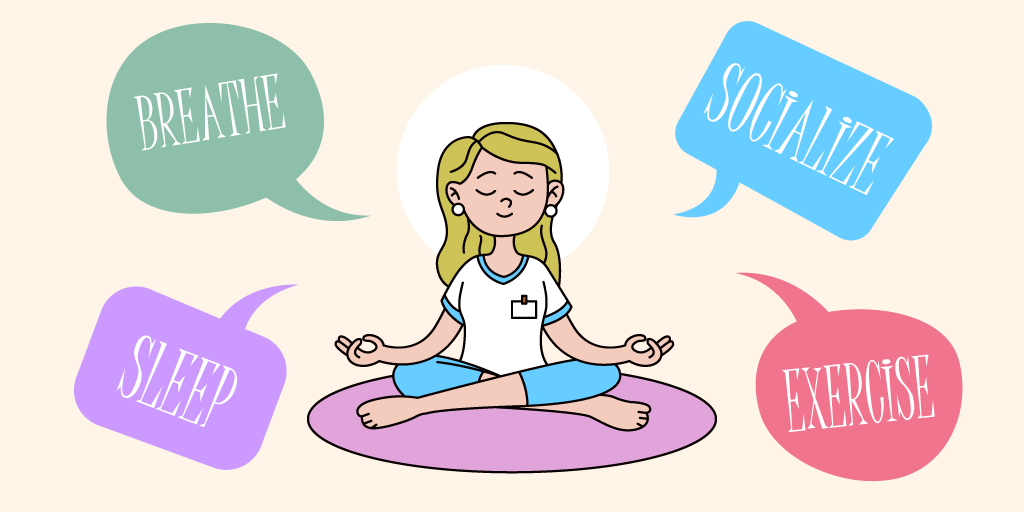
Techniques for Mindfulness and Stress Management
More from software
In today's fast-paced world, stress and anxiety have become common challenges that many of us face. The demands of modern life can leave us feeling overwhelmed, disconnected, and mentally fatigued. Mastering mindfulness and stress management techniques can empower us to lead healthier, more balanced lives. In this blog, we will explore the importance of mindfulness, delve into effective stress management strategies, and provide practical techniques to help you achieve a calmer and more focused state of mind. Let's embark on a journey of self-discovery and learn how to master the mind to lead a more fulfilling and peaceful life.
I. Understanding Mindfulness:
Mindfulness is the practice of being fully present and engaged in the present moment without judgment. It involves paying attention to our thoughts, feelings, bodily sensations, and the surrounding environment. The roots of mindfulness can be traced back to ancient meditation practices, but in recent years, it has gained significant popularity due to its proven benefits for mental health and overall well-being. Research has shown that regular mindfulness practice can reduce stress, anxiety, and depression while improving focus, emotional regulation, and overall cognitive functioning.
II. The Science Behind Mindfulness:
Numerous studies have explored the neurological effects of mindfulness on the brain. Brain imaging studies have revealed that mindfulness meditation activates areas of the brain associated with attention, emotional processing, and decision-making. These changes in brain activity lead to enhanced emotional resilience and a reduced stress response. Moreover, regular mindfulness practice has been linked to a decrease in the size of the amygdala, the brain region responsible for processing emotions such as fear and stress.
III. Identifying Stress Triggers:
Before we can effectively manage stress, it's essential to identify its root causes. Stress triggers can vary from person to person and may include external factors such as work pressure, financial concerns, and relationship issues, as well as internal factors like perfectionism, self-criticism, and negative thought patterns. Take some time for self-reflection and journaling to pinpoint your primary stress triggers. Once you identify these triggers, you can develop targeted stress management strategies.
IV. Mindfulness Techniques for Stress Management:
There are various mindfulness techniques that you can incorporate into your daily life to manage stress effectively. Here are some popular ones:
- Breath Awareness: Simply focus on your breath as you inhale and exhale. This technique can be done anywhere, anytime, and helps anchor your mind to the present moment.
- Body Scan: Lie down or sit comfortably and bring your attention to different parts of your body, starting from the toes and moving upward. Notice any sensations or tension and allow yourself to relax.
- Loving-Kindness Meditation: Send feelings of love, compassion, and goodwill to yourself and others. This practice can cultivate feelings of connection and reduce feelings of isolation.
- Mindful Eating: Slow down and savor each bite of your meal. Pay attention to the taste, texture, and smell of the food, fostering a sense of gratitude for nourishment.
- Mindful Walking: Take a walk in nature and pay attention to the sensation of each step, the sounds around you, and the beauty of your surroundings.
V. Cultivating Gratitude and Positivity:
Gratitude is a powerful practice that can shift our focus from what we lack to what we have. Practicing gratitude can improve our overall outlook on life and enhance our ability to cope with stress. Keep a gratitude journal, where you write down things you are thankful for each day. Additionally, challenge negative thought patterns and replace them with positive affirmations. Cultivating a positive mindset can increase resilience and reduce the impact of stress on our mental and emotional well-being.
VI. Healthy Lifestyle Practices:
Physical well-being is closely linked to mental and emotional health. Engaging in regular exercise, getting enough sleep, and maintaining a balanced diet are essential components of stress management. Exercise releases endorphins, the "feel-good" hormones that can elevate your mood and reduce stress. Prioritize restful sleep to allow your body and mind to recharge and rejuvenate. Additionally, nourish your body with a balanced diet rich in whole foods, as proper nutrition supports overall well-being.
VII. Mindfulness in Everyday Situations:
Mindfulness is not limited to formal meditation sessions. You can practice mindfulness in everyday situations to cultivate a sense of presence and awareness. Whether you're eating a meal, doing household chores, or engaging in conversation, bring your full attention to the present moment. Notice the sensations, thoughts, and emotions that arise without judgment. By doing so, you can prevent the mind from wandering into worries about the past or anxieties about the future.
Mastering the mind through mindfulness and stress management is a transformative journey that offers profound benefits for mental, emotional, and physical health. By incorporating mindfulness practices into our lives, we can develop a greater sense of self-awareness, resilience, and peace. With continued practice and dedication, we can navigate life's challenges with greater ease and cultivate a more balanced and fulfilling existence. Let mindfulness be our guiding light on this path of self-discovery and self-mastery. Embrace the power of the present moment and unlock the potential for a calmer, more focused, and happier life.

